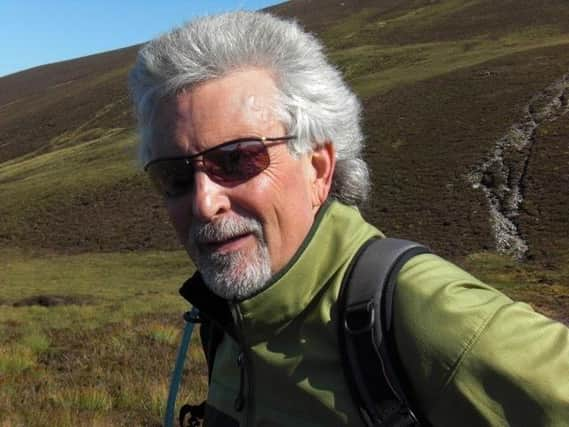American electrical engineer died after his brakes failed as he cycled over Dibbles Bridge in the Yorkshire Dales


Craig Barnhart, 66, was cycling with his wife Anna from their home in Bewerley, near Pateley Bridge, to local beauty spot Barden Tower during lockdown on April 22 when he lost control on a 16 per cent incline leading to Dibbles Bridge on the B6265.
Mr Barnhart, an American originally from Colorado who had lived in Yorkshire for almost 20 years, and his wife were both riding e-bikes. Mrs Barnhart was cycling in front of her husband when he passed her at speed shouting that his brakes had failed.
Advertisement
Hide AdAdvertisement
Hide AdThe electrical engineer collided with the bridge parapet and fell onto a barn beside Dibbles Bridge Cottage. Although he survived the initial impact, he then fell again from the roof to the ground and sustained multiple injuries to his chest, head and pelvis that were not survivable.
A subsequent examination of the electric bicycle found that both the front and rear brakes were worn down to the point of being almost completely ineffective.
Mrs Barnhart told the inquest at County Hall in Northallerton that they were aware of the front brakes being defective, and that during their regular cycle rides in the spring her husband had been relying on the rear brakes. He had planned to take the bike in for maintenance once lockdown ended.
She added that she usually preferred to cycle at a faster speed than the more 'sedate' Mr Barnhart, and that he was 'not intererested in riding at speed'.
Advertisement
Hide AdAdvertisement
Hide AdThe couple were familiar with local routes, many of which involve steep descents, and set out at around 4pm on the day of the accident to cycle to Hebden, Burnsall and Barden Tower. Mrs Barnhart had only owned her own e-bike for several months and her husband was 'enthusiastic' about their rides together, as he was already a regular cyclist who commuted to work by bike.
The inquest heard that Mr Barnhart reached speeds of 47mph on the descent to Dibbles Bridge, and was 'catapulted' over the bridge when he was unable to negotiate a tight bend.
North Yorkshire Police forensic collision investigator PC Paul Harris said this was 'very fast' for a cyclist and was recorded by Mr Barnhart's Garmin device.
Mrs Barnhart told the inquest how she saw her husband on top of the outbuilding and that he 'appeared dazed' and was trying to move. She and the cottage's owner, Paul Mountford, both shouted up at him to remain still.
Advertisement
Hide AdAdvertisement
Hide AdHowever, as Mr Mountford watched, Mr Barnhart slipped down the roof while trying to raise himself into a sitting position and fell. He struck a stone trough and landed heavily on his chest.
When Mr Mountford and Mrs Barnhart reached him, he was breathing heavily and unable to speak. Paramedics arrived within minutes and began CPR, but he died at the scene within an hour.
The inquest also heard that North Yorkshire County Council had installed safety mesh on the west side of the bridge following two fatal collisions in 2014 and 2015, when cyclists James Nelson, from Skipton, and Dr George Ballard, from Ben Rhydding, died in separate incidents after they struck the parapet and fell into the River Dibb. However, the mesh did not extend to the section where Mr Barnhart fell through and additional protective measures will now be installed. New signage warning cyclists of the dangers of the descent and the bend will also be erected.
PC Harris added that the hydraulic brakes on Mr Barnhart's bike were 'very much restricted' due to an absence of brake fluid and worn pads. The rear brake had been operated 'to destruction' because of the known fault with the front brake.
Advertisement
Hide AdAdvertisement
Hide AdMrs Barnhart said that her husband was an active man who loved skiing, kayaking and trekking. The couple had travelled to Alaska, New Zealand, Nepal and the Arctic Circle together, having married when they were just 19.
"He was fit, strong and energised, but he was such a safe man. He was happy, positive and gentle, and I was drawn to those traits, He could make everyone feel comfortable, he was so down to earth and he knew his priorities so well. He was such an enthusiastic person and we were deeply in love. He was always ready to jump into adventures.
"It is perhaps not surprising that his precious life should end this way, and he would have preferred to die doing something he loved to his last breath.
"I'll always miss him and I'm so pleased I spent my life with him."
Assistant coroner for North Yorkshire Jonathan Leach recorded a verdict of death in a road traffic collision with no third party involvement.